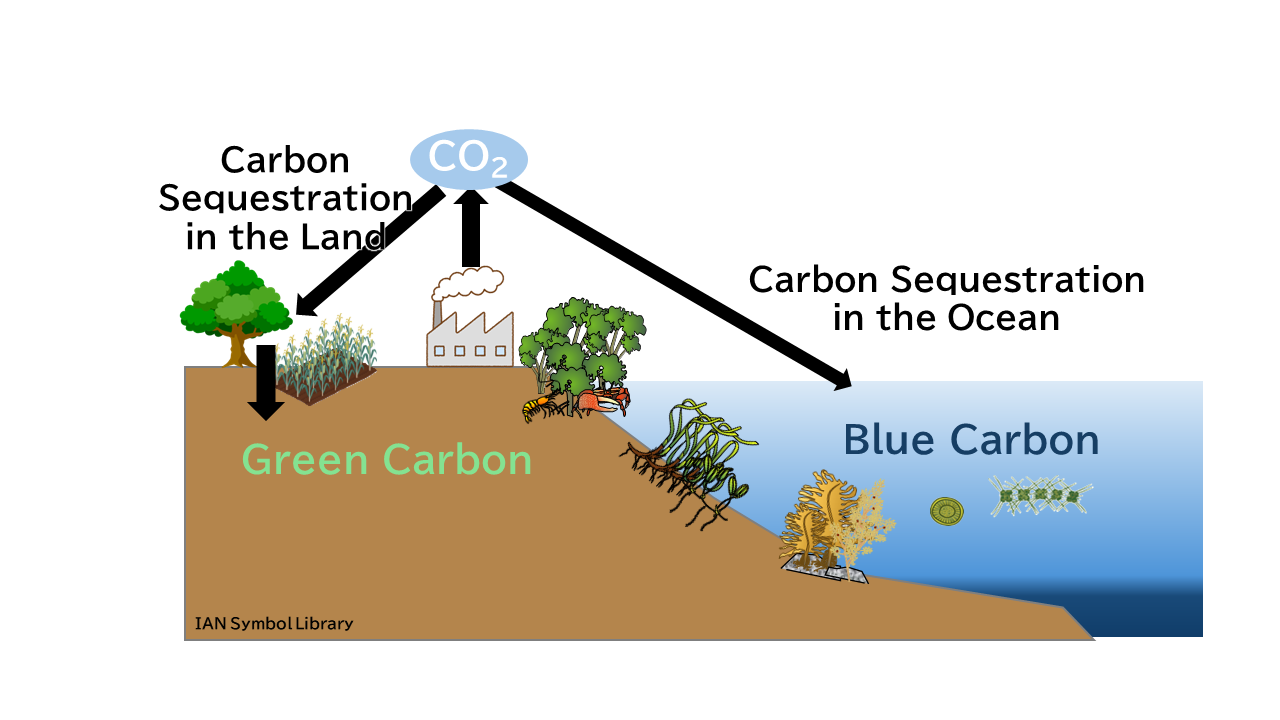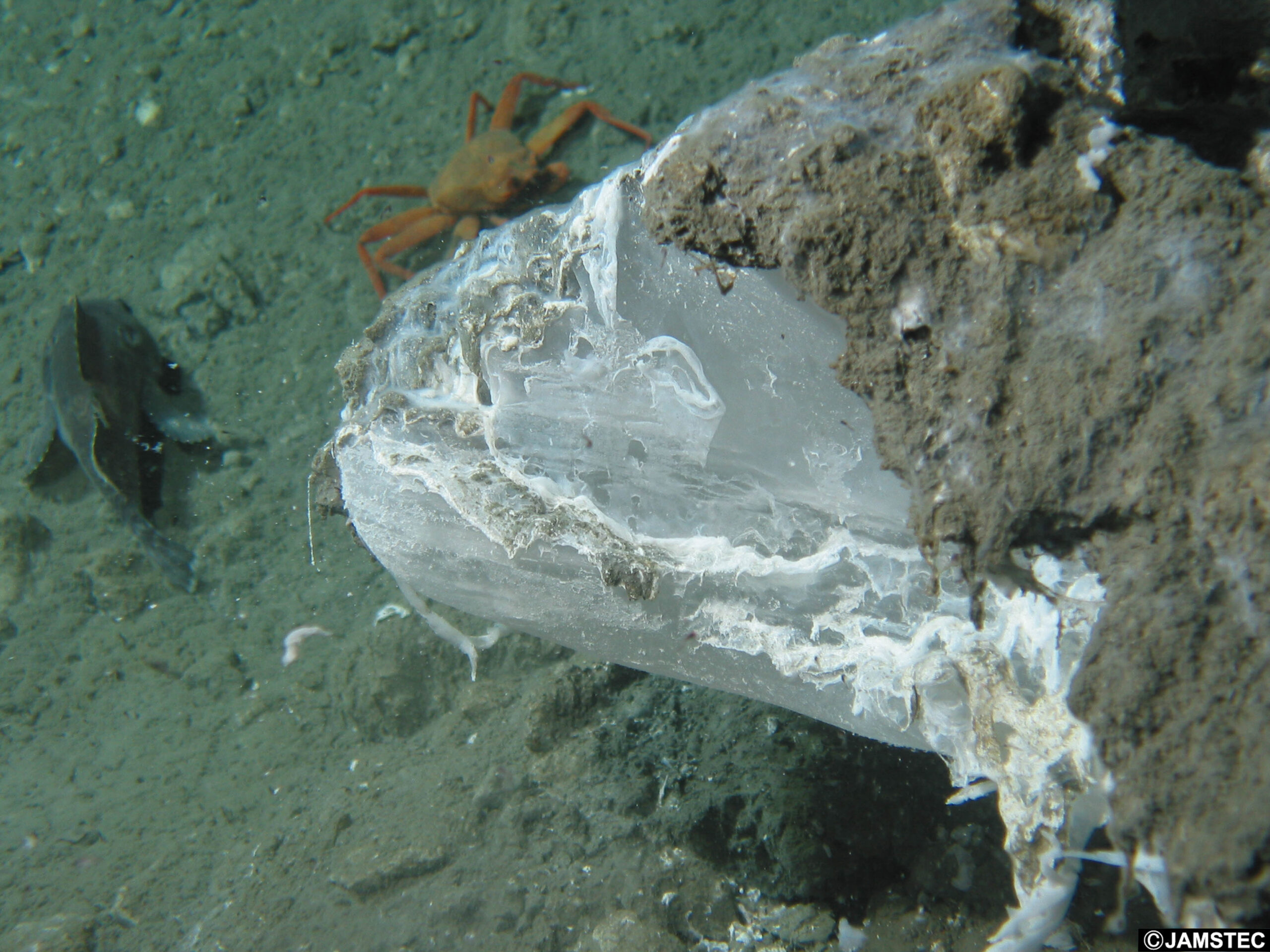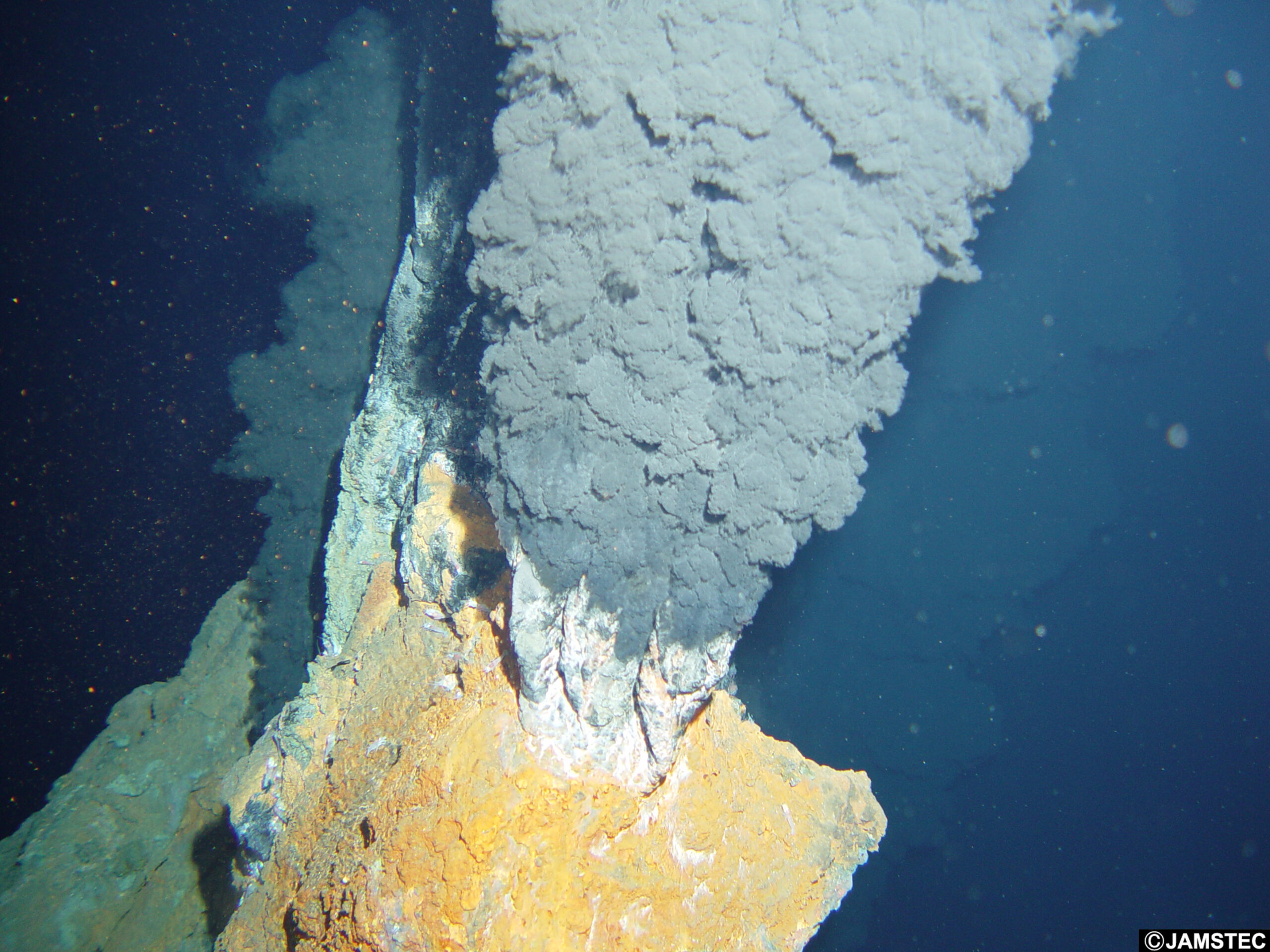Greetings from the Hub Director

Tsuyoshi Tanaka
Japan, endowed with a rich and diverse array of natural resources despite its small size, has accumulated extensive research dedicated not only to the conservation of these resources but also to their utilization, contributing to the sustainable development of the global environment. Particularly in the realm of “green carbon,” which includes carbon captured by terrestrial ecosystems, our university boasts significant depth in research.
On the other hand, Japan ranks 61st in the world in terms of land area but is the 6th largest maritime nation when including its Exclusive Economic Zone and other marine areas. One of Japan’s most critical tasks as a maritime nation is to secure and utilize natural marine resources such as rare earths and methane hydrates and advance research on “blue carbon,” which pertains to carbon captured by the ocean, thereby contributing to global environmental improvement.
Green carbon and blue carbon are interdependent, and the development and promotion of comprehensive research that seamlessly links both types of research, which have traditionally tended to be separated, is essential for true social change to achieve carbon neutrality. For this reason, since the “Basic Plan for Science, Technology and Innovation,” which was approved by the Cabinet in 2021 and aims to achieve virtually zero CO2 emissions in Japan, TUAT has concluded a comprehensive agreement with the Japan Agency for Marine-Earth Science and Technology (JAMSTEC), a leading institute for marine research, and has deepened its collaboration with JAMSTEC. In accordance with the “Basic Policies for Economic and Fiscal Management and Reform 2022,” the University established the “BX/GX International Center of Excellence” in April 2023 as an education and research center that integrates and fuses the Blue Transformation (BX) and Green Transformation (GX) programs. This center will further develop the collaboration between Tohoku University and JAMSTEC, create fusion academic fields covering both terrestrial and marine areas, develop international human resources to take on these fields, establish educational programs that integrate the most advanced technologies of JAMSTEC with the best of Tohoku University’s educational and research achievements, and promote personnel exchange and organizational integration that maximizes the strengths of both institutions. The center aims to establish itself as an international cutting-edge research center for carbon neutrality that will represent Japan and lead the world.
As the director of this hub, I am committed to ensuring that it fulfills its significant role and becomes a world-renowned educational and research center. I ask for your continued support and collaboration.
Program Outline
The ocean is a repository of resources nurturing diverse species with various functions and manufacturing capacities, rich in energy and mineral resources such as methane hydrates and rare earths. The development and conservation of marine resources represent a crucial strategy for sustainable growth in our country, demanding manufacturing and energy strategies that incorporate an understanding of the entire Earth’s environment and ecosystems, including both marine and terrestrial ecosystems. Particularly focusing on the utilization of “blue carbon” captured by the ocean through biological processes and “green carbon” captured by forests and other terrestrial areas.

To address these challenges, our hub leverages the research capabilities of the Japan Agency for Marine-Earth Science and Technology (JAMSTEC), a global leader in marine science and technology, combined with our university’s strengths in agriculture and engineering research fields. We are advancing cutting-edge educational research encompassing both Blue Transformation (BX), focused on blue carbon research in marine ecosystems, and Green Transformation (GX), focused on green carbon research in terrestrial ecosystems. Key themes include
“ecosystem understanding and environmental impact assessment,”
“carbon dioxide capture, utilization, and storage (CCUS),”
and “material development using unexplored biological resources,”
“ecosystem understanding and environmental impact assessment,”
“carbon dioxide capture, utilization, and storage (CCUS),”
and “material development using unexplored biological resources,”
aimed at cultivating international talents who can create new values by identifying and solving complex, interdisciplinary issues across marine and terrestrial realms.
Furthermore, as part of our affiliated graduate program, we offer research and educational programs integrating JAMSTEC’s advanced technologies, promote international collaboration with leading foreign universities and research institutions related to carbon neutrality, and encourage the creation of startups.
As an internationally distinguished educational and research hub proficient in both BX and GX, we aim to cultivate researchers who will bridge the gap between marine and terrestrial ecosystems, and contribute to a sustainable society through proper circulation of Earth’s resources.






